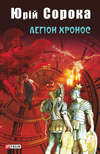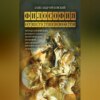Czytaj książkę: «Trading»
CHAPTER I
Christmas day was grey with clouds; on the roofs of the city and in the streets the sun never shone all day. People called it cold. Sarah Staples found it so on her crossing. Inside Mrs. Lloyd's front-door, however, it seemed to Matilda to be nothing but sunshine. She had not leisure to look at the grey sky, and to be sure the temperature was that of summer. Matilda had a great deal to do. Her various parcels were to be neatly tied up in white paper, with the names of the persons they were for nicely written thereon, and then committed to Mrs. Bartholomew for arranging on the Christmas tree. Then the presents for Anne and Letitia were to be directed and sent; Maria's basket packed and put in charge of the express-man; and several little letters written, one to Mr. Richmond. Till all these things were done, Matilda had no time to think of the weather; then she found that the snow was beginning to fall and coming thick.
"Yes," said Norton, to whom she announced her discovery; "and it's stinging! and coming on to blow. It will be a night! I like it. That feels like Christmas."
"Then there'll be no party?" said Matilda, rather more disappointed than she wanted to shew.
"Party?" said Norton, "what about the party? It won't snow in here. Pink. What are you thinking of? The party'll be all the merrier. I tell you, it feels like Christmas."
"But will they come, through all the storm?"
"They'd come, if the hailstones were as big as eggs," said Norton. "You never saw one of grandmother's Christmas trees, Pink; and they never did anywhere else. No fear but they'll come, every one of them. You go along and get dressed."
Matilda ran upstairs, glancing out of the hall window as she passed with a thrill of delight and mystery. The air was darkening already with the falling snow, and the wind swept it past the house in a white mass; by contrast the evening splendours seemed greater than ever. She dressed in a trembling excitement of pleasure, as far as her own part of the preparation went; then Mrs. Laval's maid came in to finish her toilette, and Mrs. Laval came to superintend it. Matilda had only to stand still and be curled and robed and sashed and slippered; till the work was done, the maid went, and Mrs. Laval took the child in her arms and asked if she was happy?
"Very happy," Matilda said.
"It does not take much to make you happy, love."
"Why, mamma!" said Matilda looking down at her white ruffles and then at her adopted mother, "I have so much that I don't know what to do!"
Mrs. Laval smiled and sighed, and kissed her again.
"And yet Christmas night is only beginning," she said. But the wind and the hail dashed at the windows as if answering her that it had indeed begun outside. Mrs. Laval went away to her own dressing, and Matilda stood a moment at the window listening. It was long after dark now; but she could hear the whistle of the sleet as the wind bore it past, and the rush of ice and snow against the window-panes, and even through the close-fining sash she could feel a little gush of keen air. And for one moment Matilda's thoughts darted to Sarah, at her crossing and in her cellar home all that day and night. The contrast was as sharp as that little gush of icy air. Was it right? Matilda thought. Was it right, that her dainty white dress should be so pretty on her and the Christmas party so fine, when Sarah and others like her were in cold and wet and rags? It was too disagreeable to think about, as Matilda could not help it; and she went downstairs.
How the house was lighted up! it was a second daylight, only more splendid. What delicious warm air filled every room, and every staircase, and every lobby! How handsome looked the marble floor of the hall, with its luxurious mats at every door! But as her foot touched the marble Matilda found something else to think of. Norton came out. He looked her up and down.
"What's the matter, Norton?" said Matilda, a little wanting to know his opinion.
"Nothing," said he nodding. "You'll do."
"This will be a very funny dress for me to play proverbs in, – don't you think so? I don't look much like Judy's Satinalia."
"Not much," said Norton. "You don't look much like Judy's anything. O Pink! do you know we are going to have a witch here to-night?"
"A witch?" said Matilda.
"A capital witch. It's a capital idea too, for it's a new thing; and it's so hard to get hold of something new. I expect this'll be the party of the season."
"What do you mean?" said Matilda.
"You'll see," said Norton. "Only don't be frightened. The witch won't hurt you."
And here came Judy, and took a good silent stare at Matilda. The two girls were dressed alike. Norton watched them with a sly glance. Without any remark or salutation Judy passed them with a toss of her head, and went into one of the drawing-rooms.
"She'll do," said Norton, with a competent nod of his head in Judy's direction. "That is, she'll do the insolent, whenever she has a mind to. She is a case, is Judy Bartholomew. Well, come, we must get out of the way, Pink. Somebody'll be here soon."
So they strolled into the lighted drawing-rooms, where Judy and David were; and strolled about, consulting arrangements for the play, till the doors opened and other white dresses, and coloured sashes, and gallant white-trowsered young gentlemen began to pour in and claimed their attention. And ladies accompanied them, not a great many, but a few favoured mothers and aunts and elder sisters; and soon the drawing-rooms were all alive with motion and colour, and noisy with the hum of many voices.
It was a wonderful scene to Matilda. She forgot that she had so little to do with it, and was so left out of it by the gay little throng. She did not at first think of that. To be sure she was a stranger; it was quite natural, as it seemed to her, that she should be left out. The pleasure was great enough, merely to look on. Everybody else was very busy talking and laughing and moving about the rooms, – all except herself. Matilda had never seen such a display of very young ladies and gentlemen; the variety of styles, the variety of dresses, the diversity of face and manner, were an extremely rich entertainment. She noticed airs and graces in some, which she thought sat very ill on them; – affectations of grown-up manner, tossings of curls, and flaunting of white gloves, and waving of fans, at which Matilda's simplicity was greatly astonished. Little gentlemen stood before little ladies, with hands behind their backs, and entertained them in conversation which appeared to be of the politest sort. And Judy's blue scarf flitted from end to end of the rooms, dipped to the floor as she courtesied to new comers, and fluttered with delight as she darted to speak to some favourite or other. The rooms grew very lively. The gas lights shone upon all the colours of the rainbow, moving and changing as if Mrs. Lloyd's house had been a kaleidoscope. David and Norton were not in the company. Suddenly Norton stood at Matilda's side.
"What are you doing here, Pink?"
"Nothing." Matilda looked and smiled at him. "Only looking at everything."
"But you ought to be in it, Pink."
"In what?"
"Why! in the work; in the talk. What are you sitting in a corner here for?"
"You know, Norton, I do not know anybody."
"Hasn't Judy introduced you? Not to any one?" said Norton. "Left you here? Judy Bartholomew! if it wasn't Christmas night and an inconvenient time to make a row" —
"Hush, hush, Norton. I am having a very good time," said Matilda, looking as she felt, like a very happy little girl.
"Well," said Norton, "there are two odd people here to-night. One of 'em's Judy Bartholomew, and the other is – somebody you don't know. Come! come here. Esther Francis! – this is my sister, my new sister Matilda. Hasn't Judy introduced you?"
Norton had caught by the arm, as she was passing, a girl of about Judy's age, whom he thus brought face to face with Matilda. She was sweet-faced and very handsomely dressed, and she had no sort of shyness about her. She took Matilda's hand and looked at her with a steady look.
"Take care of her, will you?" Norton went on. "I have got to go and arrange things with Davie; and Judy has her head full. Tell Matilda who's who; she does not know the people yet."
The two girls stood a minute or two silently together; Esther giving however a side glance now and then at her companion.
"You have not been long in town?" she said then, by way of beginning.
"Only three weeks."
"Of course then you are quite a stranger. It is very disagreeable, isn't it, to be among a whole set of people that you don't know?" Esther said it with a little turn of her pretty head, that was – Matilda could not tell just what it was. It shewed the young lady very much at her ease in society, and it was not quite natural; that was all she could make out. Matilda answered, that she did not find anything disagreeable. Esther opened her eyes a little wider.
"Do you know all about the arrangements to-night?" she whispered.
"I suppose I do."
"Will there be dancing?"
"I have heard nothing about dancing," said Matilda. "I don't think there'll be much time for it. I don't see how there can be."
"Are you very fond of dancing?" Esther asked, with her eyes at the further end of the next room.
Matilda was conscious of feeling ashamed of her answer. Nevertheless she answered. "I do not know how to dance."
"Not dance!" said Esther, with a new glance at her. "Did you never dance? O there's nothing I care for at parties but to dance. And there are just enough here to night; not a crowd. Aunt Zara will send you to dancing-school, I suppose. But it isn't so pleasant to begin to learn when you are so old."
"Aunt Zara!" said Matilda. "Norton did not say you were his cousin."
"Norton's head was too full," said Esther with another movement of her head that struck Matilda very much; it was quite like a grown-up young lady; and gave Matilda the notion that she thought a good deal of Norton. "Yes; we are cousins; that is why he told me to take care of you."
Matilda was tempted to say that Norton would save her that trouble as soon as he was at leisure to take it upon himself; but she did not. Instead, she asked Esther how old she had been when she began to take dancing lessons?
"I don't know; three and a half, I believe."
The deficiency of Matilda's own education pressed upon her heavily. She was a little afraid to go on, for fear of laying bare some other want.
"Yes," said Esther after another interval of being absorbed in what was going on in the next room; – "yes; of course, you know I began to learn to dance as soon as I began to wear – stays," she uttered in a whisper, and went on aloud. "The two things together. O yes; I was almost four years old."
Here she broke off to speak to some one passing, and Matilda was lost in wonderment again. A little uneasy too; for though the young lady kept her post at the side of the charge Norton had given her, and evidently meant to keep it, Matilda thought she had an air of finding her office rather a bore. A young lady who had danced and worn stays from the time she was four years old, must necessarily know so much of life and the world that a little ignoramus of a country girl would be a bore.
"What are they going to do then to-night, if we are not to dance?" resumed Esther when her friend had passed on. "Just have the Christmas tree and nothing else?"
Nothing else but a Christmas tree! Here was an experience!
"Norton and David are going to make a play," said Matilda; "acting a proverb."
"Oh!" said Esther. "A proverb! David is a good player, and Norton too; excellent; that will be very good. I thought I heard something about a witch; what is that?"
"What is what?" said Judy, who found herself near.
"About the witch?" said Esther.
"It' – mystery."
"Then is there to be a witch?"
"Certainly."
"Who will it be?"
"Part of the mystery," said Judy. "Upon my word I don't know. I couldn't find out. And I tried, too."
"What is she going to do?"
"That's the rest of the mystery. Without being a witch myself, how am I going to tell?"
"I have heard sometimes that you were," said Esther.
"Ah! But there are witches and witches," said Judy; "black and white, you know, and good and bad. I'm a black witch, when I'm any. It's not my business to get people out of trouble."
"I shall never ask you," said Esther shaking her head. "But where is the witch to be? and when will she appear?"
"She won't appear. She will be in her den. All who want to see her will go to her den. So much I can tell you." And Judy ran off before another question could be asked.
The elder ladies came in now, and there was a fresh stir. Mrs. Laval introduced Matilda to several boys and girls in the company before many minutes had gone; but there was time for little else beside an introduction, for the boys were ready to play; and all the guests were assembled in one room to leave the other free for their operations and give a good view of them. In that room the lights were lowered too, to make the scene of the play more brilliant by comparison.
The play was a great success. Matilda laughed for very delight, as well as at the fun of the thing. David, who personated the poor man who had come to sell a piece of ground, talked so admirably like a countryman, and was so oddly crochety and cross and gruff and impossible to make terms with; and then Norton, who was the rich man he had come to see and who wanted the land, coaxed him so skilfully, and ordered all sorts of good things to be brought to him, when he found he had come a good way and was hungry; and the imaginary banquet was very funny, David making inquiries and comments over the dishes he did not know and Norton supplying him with others, till he was satisfied. Then, in soothed good humour, David was easy to deal with, and let his land go a bargain. The acting was really extremely good; both the boys being clever and without any sort of embarrassment or any even shy affectation. The proverb which Matilda and Judy were to have played was given up for want of time. The boys' proverb was guessed by one of the elder ladies – "It is ill talking between a full man and a fasting." Matilda was very glad, for her part, that she and Judy were let off.
A hush of expectancy fell now upon the little company. It was time for the tree to be displayed. Even talking hushed, while all eyes were upon the folding doors leading to the last drawing-room to be thrown open. Matilda was at the back of the crowd, but even there she could see the blaze of light beyond as soon as this was done; and the whole company pressed forward and peeped in. Such a beautiful sight then, her eyes had never beheld. The tree was a generous, large, tall young fir, set in a huge green tub; but whereas in the wood where it grew it had green branches, with fringy, stiff, prickly leaves, now its branches were of every colour and as it were fringed with light. From the lowest bough to the topmost shoot it was a cone of brilliancy and a pyramid of riches. Lights glittered from every twig, and among the lights, below them and above them, near the stem and out at the tips of the bending boughs and covering the moss which covered the tub, were trinkets or toys or articles of wear or packages done up in white or coloured paper and made gay with coloured ribbands. So bountiful a tree, so elegant a tree, one so rich in its resources of pleasure, perhaps no eyes there had ever seen; for when Mrs. Lloyd did anything she was accustomed to do it thoroughly; and she had on this occasion two backers. One burst of admiration from the whole little crowd was followed by accents of delight and murmurs of expectation.
The tree stood in the middle of the large drawing-room, and the bright crowd which formed round it was surely a pretty sight. A sight for the elders alone; no child had eyes for anything but the tree. Eager eyes; glad eyes; sparkling and glowing with delight and expectation; a little, soft, rustling, hustling crowd, swaying gently, agitated, moved here and there, to and fro, but all fastened to that brilliant centre of a Christmas tree, as much as ever the planets to their centre. At the very back of the crowd, as she was, Matilda stepped on an ottoman to see better; and for her even expectation was almost lost in bewildered fascination. In truth the Christmas tree was a beautiful spectacle. The fairy-like beauty was what Matilda thought of at first; then she began gradually to notice how its branches were laden with other things besides lights, and how the little company was all on tiptoe with eagerness. With a certain faint flutter at her own heart, Matilda stood on her perch and watched.
Presently a tall young fellow, one of the oldest among the boys, took his stand by the tree with a long gilt rod in his hand. The crowd fell back a bit, and hushed its murmur and rustle. No danger of anybody seeing Matilda; not an eye turned her way. The lad with the gilt rod, who also was decorated with a favour of red and white ribbands, now lifted down from the tree one of its many packages, looked close at it, and called aloud the name written thereon. A name Matilda did not know. The crowd stirred in out place and a little figure came forward and took the package. Matilda wanted to know what it was, very much; but the little girl herself made no haste to discover. A slight private examination she gave, and with a smile and a blush clasped her little hand upon the package and looked to see what would be next. The play went on after this fashion; the presiding gilt rod was quick in its operations, as indeed it had need to be; names were called out in rapid succession; and presently the whole circle was astir, with coming and going, explanations and questions and whispers of delight, now and then a spring or a dance of exultation; and still the gilt rod went on hooking down things from the tree and signalling the owners to come and take possession.
"Mrs. Laval! – from Matilda. I suppose Mrs. Laval knows who Matilda is?" – said the master of ceremonies. A new thrill went all through the distant possessor of that name. "That's my obelisk!" she thought. "I wonder if she will like it? Yes, she knows Matilda, a little."
"Norton Laval! – from his sister. I didn't know that Norton had a sister."
"The things you don't know are always more than the things you do know, Edward Foster," said Norton coming forward to receive his watch-guard.
"'You' meaning – whom?" said gilt rod, hooking down another ribband-looped parcel. "By virtue of my office I know so many things just now, that I grow conceited, and am surprised to find myself ignorant any where. Matilda Laval! – from her mother."
With a great leap of her heart, Matilda jumped down from her ottoman and made her way as she could through the throng. The tall boy with the gilt rod presented to her a small square packet, sealed and tied. Matilda's fingers clasped upon it as she stepped back; and then for the first time that evening she found Judy at her side. Perhaps Judy would have spoken, if the next call had not been,
"Matilda Laval! – from Mrs. Bartholomew."
Flushing and trembling, Matilda stepped forward again and received a second little packet, much like the former. Then Judy herself was called; everybody by this time was getting his hands full; and still the Christmas tree blazed on as brightly as ever.
Presently Matilda got a third present; this was from David; much larger. She was very much astonished; for without opening she could guess that it was something valuable; it was hard and square and heavy. Of all there, not a child was in such private ecstasies as she. Her flushed cheeks told it; otherwise she was quite undemonstrative. Though I say wrong; for eyes and lips were abundantly expressive of tremulous joy.
"Is that my present?" said Judy, by her side again. "No, it is David's. Do you know what it is?"
"No," Matilda whispered.
"I don't either. Why don't you look?"
"I will look by and by."
"Nonsense!" said Judy; but Matilda was called off again to take what Judy had prepared for her.
"That isn't much," said that young lady, when Matilda fell back to her former place; "it's only bonbons. What has aunt Zara given you?"
"I don't know yet, Judy."
"O look. And mamma. Mamma wouldn't tell me. Those are their gifts in your hand there, aren't they? Look, and see. I can guess," said Judy peering round Matilda to see the packets.
"No, you can't," said Norton at the other side. He was fastening his guard-chain in its place. "You don't know, and she don't know. I like people who can keep cool, and not dash their heads under water the first thing."
"Stuff!" said Judy. "I want her to get her head above water; she don't see anything now, nor know anything."
"Her head's all right," said Norton composedly. "Knowledge'll come in time. I guess there's a good deal of it to come, too."
"What has David got, Norton?"
"Loads of books," said Norton. "And a rifle."
"A rifle!" screamed Judy.
"And a dressing-case. And a dressing-gown. And a riding-whip. And a watch-chain."
"And what have you got, Norton?" Matilda asked.
"Just what I wanted," said Norton, with a smile of confidence and secret good fellowship which was most pleasant to Matilda; it made her feel not quite so much alone in that crowd. "You shall see," he went on. "Hallo! you're called. Give me some of your traps to hold for you, Pink; you have not got a hand to take anything more."
So Matilda gave him her bonbons and box, if it were a box, to hold, while she went for ward again. This present was from Norton, and of itself filled her arms. Wrapped up in papers as it was, she could not know more of it than that. She came back to Norton with high-coloured cheeks and eyes very bright indeed.
"What's that?" said Judy. "What has Norton given you? it's big enough. Pshaw! I know; it's a desk."
"A desk!" exclaimed Matilda in tones of delight.
"Keep your own counsel, Judy," said Norton coolly. "You have no idea of keeping other people's."
"Norton," said Esther coming up to them, "who is the witch?"
"Can't tell, even if I know," said Norton. "I keep other people's counsel."
"But where are we to see her?"
"In her den, of course."
"Where's that?"
"You will know when the time comes."
"Then she won't come in here among us all?"
"I reckon not," said Norton. "She'll see only one at a time, I hear."
"What for?" said Esther.
"Ah, what for!" echoed Norton. "I don't know, I can tell you. And what's more, I don't know yet whose notion it is. Now, Pink, I propose we go upstairs and put these things away. Supper will be in a few minutes, and then what will you do with your hands full? Come!"
And away he and Matilda went, slipping out of the room as quietly as they could, and then running upstairs, till they found a quiet corner and breathing place in Matilda's room.
"Now, Pink, don't you want to look?" said Norton turning up the gas. He had his own curiosity too, it seems. But he did not interfere with her; he looked on, smiling and superior, while Matilda's trembling fingers pulled off the papers, from his package-first. Judy had spoken truly; it was an elegant little desk, all fitted and filled. Matilda's heart, Norton could see, was quite full with that.
"Come!" said he gayly, "let us see David's choice. I don't know what it is, David don't tell all his mind."
And he stopped, for Matilda uttered a little scream of pleasure. David's choice had been a work-box. It was of pretty fancy wood, charmingly lined and fitted up.
"Pretty well for David!" said Norton "He thinks you know what to do with a work box, and reason too. Good for him. But now, Pink, guess what this is!"
And Norton possessed himself of the little parcel which bore his mother's handwriting and held it up before Matilda.
"I can't guess."
"Try. What would you like, Pink? What would you like better than anything else? Think."
"Oh Norton!" said Matilda with changing colour, "I don't know; I am afraid to guess. It's something small; could it be a locket with her hair?"
Norton with a delighted face put his hand with the parcel close to Matilda's ear, with the other hand forbidding her to touch it. "Listen!" he said. Matilda listened, and absolutely grew pale with intensity of excitement.
"I hear something, Norton!" she said seizing the package.
"Ah, you do!" said Norton. "Now you know? Yes, just look at it. Isn't it a beauty? I was with mamma when she got it. There's no mistake in that, Pink; it's a splendid watch, Bars and Bullion said; – I mean, the man at Bars and Bullion's, and I believe it was Bullion himself. Do you like it? Now Pink, we must not stay a minute longer; supper will be on hand, and you want some, don't you. Come! Put these away, and come."
Matilda could do it, even without looking at her bonbons or Mrs. Bartholomew's present, and with only a glance at her watch. She locked up her treasures and went down with Norton; a happy child, if there was one in the city that night.




















